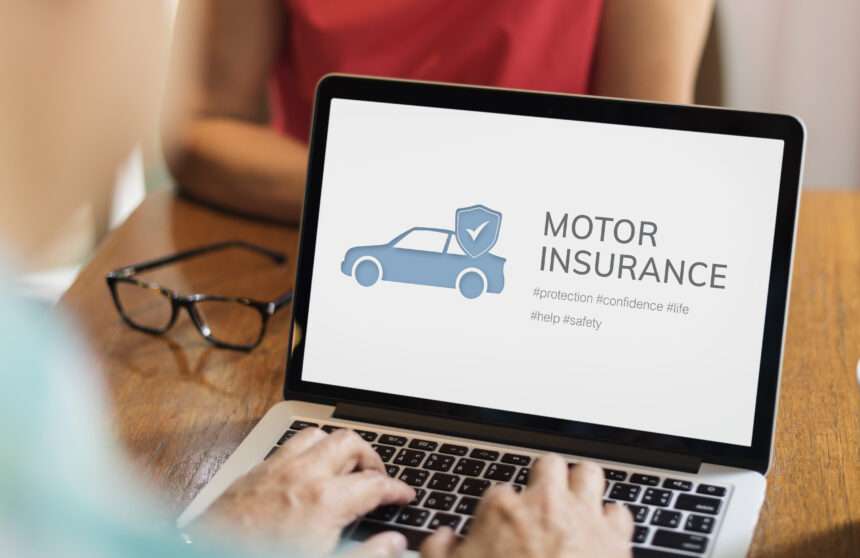Car insurance tips 2025 aren’t about loopholes—they’re about the simple, legal moves that underwriters actually reward: cleaner risk, fewer losses, and easier policies to service. In this guide, we’ll walk through nine proven strategies to reduce your premium without sacrificing essential protection. You’ll also find practical checklists, examples, and a quick TCO lens so you don’t save €100 today only to risk thousands later.
Quick Facts:
- Insurers price for risk + cost to handle you. Lowering claims frequency, mileage, and fraud risk can lower premiums.
- Garage parking, telematics (usage-based insurance), and strong anti-theft often qualify for discounts.
- Raising your deductible (excess) can reduce price, but only if you can comfortably afford that excess at claim time.
- Shopping, bundling, and right-sizing coverage typically produce the biggest legal savings in car insurance tips 2025.

1) Right-size your coverage before you shop around
Before you ask for quotes, make sure you’re asking for the right coverage. The core lesson in car insurance tips: never compare a rich comprehensive policy from Insurer A with a bare-bones policy from Insurer B. Align the cover first, then compare price.
- Liability limits: Don’t underinsure here—this protects you from third-party claims. Increasing liability is often cheaper than you think.
- Comprehensive & collision: For older, low-value cars, it may be rational to reduce or drop collision if the premium approaches the car’s market value.
- Add-ons: Windscreen, legal protection, courtesy car, roadside—keep what you’d actually use; remove what you won’t.
Pro tip: Build a single “coverage template” and use it with every insurer. This makes your comparisons apples-to-apples and reveals real pricing differences.
2) Tune your deductible (excess) with a simple break-even test
Increasing your deductible lowers the premium because you’re retaining more small-loss risk. A core tactic in car insurance tips 2025 is to run a quick break-even:
- How much does the premium drop if you raise the excess from €250 → €500 → €1,000?
- Can you comfortably pay that higher excess in an emergency without taking on debt?
If the annual saving covers the extra out-of-pocket within ~2–3 “claim-free” years, it can be worth it. If not, keep the excess lower and save elsewhere.

3) Compare quotes the right way (not just the cheapest sticker)
Every insurer uses its own risk model. Getting three to five quotes—using the same coverage template—surfaces better pricing and better service. In car insurance tips, we recommend prioritizing:
- Like-for-like coverage: limits, exclusions, drivers, usage (commute vs. business).
- Claims service: repair networks, OEM parts policies, average settlement times.
- Payment terms: monthly vs. annual (annual often cheaper), fees for changes/cancellations.
Avoid: “Ghost broking” and suspiciously low offers—use reputable carriers or brokers with verifiable credentials.
4) Bundle smartly—but check the math
Bundling car with home/renters or other lines can unlock multi-policy discounts. But the point of car insurance tips 2025 is to verify the actual saving. If bundling locks you into an overpriced home policy, you lose overall. Ask both carriers for standalone and bundled quotes and compare the total.
- Where bundling shines: established carriers with strong claims service; single billing; fewer admin headaches.
- Where it doesn’t: when the second product is uncompetitive or adds hidden fees.
5) Let telematics prove you’re a lower risk
Usage-based insurance (UBI)—via an app, dongle, or in-car data—lets safe drivers earn discounts. The best car insurance tips angle is to opt in when you genuinely drive safely: smooth braking, moderate acceleration, balanced cornering, and no late-night speeding. Young drivers and low-mileage commuters often see the biggest gains.
- Privacy & consent: Read what’s collected (location, time of day, events), how it’s used, and whether you can opt out without penalties at renewal.
- Practical win: Some programs reward fewer night miles and consistent speed compliance—you control both.

6) Lower your risk profile at home (the invisible discount)
Insurers price theft and damage risk by postcode, parking, and security. In car insurance tips 2025, easy, legal wins include:
- Garaging or gated parking: Better than street overnight.
- Anti-theft devices: Thatcham-rated alarms/immobilisers, OBD port locks, steering locks for high-theft models.
- Visible deterrents: dashcams, security lighting, and CCTV signage reduce opportunistic losses.
Tell your insurer about new security improvements; some require verification to apply discounts.
7) Drive fewer risky miles (and keep a clean record)
Mileage tiers and conviction history are major rating factors. Practical car insurance tips 2025 to reduce risk exposure:
- Consolidate errands into fewer trips; consider public transit for predictable routes.
- Use driver-assist (ADAS) responsibly—AEB and lane support reduce minor claims.
- Take an approved defensive-driving course if your market offers discounts for it.
Clean records accumulate “no-claims” discounts or bonuses. Avoid tiny claims that could erase years of no-claims savings.
8) Choose the right car and spec (repair costs matter)
Two similar cars can cost very different amounts to insure. The real lever in car insurance tips 2025 is parts and repairability:
- Insurance group/rating: Cars with cheaper parts and easier repairs rate better.
- Wheels & tech: Large alloy wheels, panoramic glass, and complex sensors can raise repair bills.
- Security: Popular models without strong immobilisers attract theft—check theft rates before you buy.
Buying tip: Get an insurance quote for your finalists before you sign. A €400/year difference wipes out “savings” from a showroom discount.
9) Pay, renew, and claim strategically
The last group of car insurance tips 2025 is about admin habits that lower total cost:
- Pay annually if possible: Avoids monthly finance charges.
- Renew on time: Start shopping 3–4 weeks before renewal; last-minute buyers are priced differently by some models.
- Be claim-smart: If damage is below or near the excess, consider paying out of pocket to protect no-claims (run the math first).
- Keep documents tidy: Clean, consistent information reduces back-and-forth and can speed claims.
How much can you realistically save?
It varies by market and profile, but a combined approach—right-sizing cover, higher excess you can afford, shopping 3–5 carriers, telematics for safe drivers, and garage parking—often yields double-digit savings. The key message in car insurance tips 2025 is to make yourself cheaper to insure in ways underwriters recognise, not to cut essential protection.
Example scenarios (so you can benchmark)
Urban commuter, on-street parking: Keeps comprehensive but raises excess from €250 to €500 after building a small emergency buffer; switches to a carrier with a better telematics program and installs a steering lock. Shops three carriers at renewal and pays annually. Result: noticeable premium drop without risky coverage cuts.
Suburban family, two drivers, garage: Bundles car + home with a reputable carrier, confirms OEM parts in repairs, and adds a dashcam. Reduces optional add-ons they never used. Keeps liability high; excess modestly increased. Outcome: lower total household spend and smoother claims handling.
Young driver on a budget: Chooses a lower-group car with standard wheels, opts into UBI, keeps mileage low with transit for uni, and completes an approved driver-training course. Focus: safe, boring car now → cheaper experience history later.
Checklist: copy this before you renew
- Create your coverage template (liability limits, comp/collision, add-ons you’ll actually use).
- Run the excess break-even (€250 vs €500 vs €1,000) and ensure you can pay it comfortably.
- Get 3–5 quotes from reputable carriers using the same template.
- Ask about UBI/telematics and garage/anti-theft discounts.
- Check payment method (annual vs monthly finance costs).
- Decide which small claims to self-pay to protect no-claims (do the math).
- Set reminders to shop quotes 3–4 weeks before the renewal date.

FAQ — Car insurance tips 2025
Is it safe to raise my excess? Yes—if you can comfortably pay it without debt. Run the break-even and keep an emergency fund. If the premium saving is tiny, don’t take the extra risk.
Do telematics always lower premiums? Not always. If your driving is already careful (and you avoid late-night miles), it can help; if not, it may not produce a discount. Read the program details first.
Are monthly payments bad? They’re convenient but often include financing charges. Compare the annual total vs. monthly cost before deciding.
Should I drop comprehensive for an older car? If the premium approaches the car’s market value, it can make sense. But keep liability strong and consider the car’s theft/vandalism risk.
What about named drivers? Add only genuine regular drivers. Misrepresentation can void cover and cause claim denials.
Related resources on Bulktrends
- TCO Explained: The Real Cost of Owning a Car in 2025
- Used Car Checklist 2025: 50 Things to Inspect
- Electric Car Buying Guide 2025: 11 Proven Steps
- Hybrid vs Electric Cars in 2025
External sources (authoritative)
- EIOPA — European Insurance and Occupational Pensions Authority
- ABI (UK) — Motor Insurance Basics
- NAIC (US) — Consumer Insurance Guides
- Insurance Information Institute — Lowering Auto Insurance
- Euro NCAP — Vehicle Safety Ratings
The best car insurance tips aren’t glamorous; they’re systematic. Start by right-sizing your coverage, raise your excess only if the math works for you, and shop like-for-like across carriers. Layer in telematics if you’re a careful driver, improve your security and parking situation, and manage mileage with realistic habits. Do those things consistently and you’ll reduce premiums without exposing yourself to big, avoidable risks—and you’ll be set up to keep savings compounding at every renewal.






